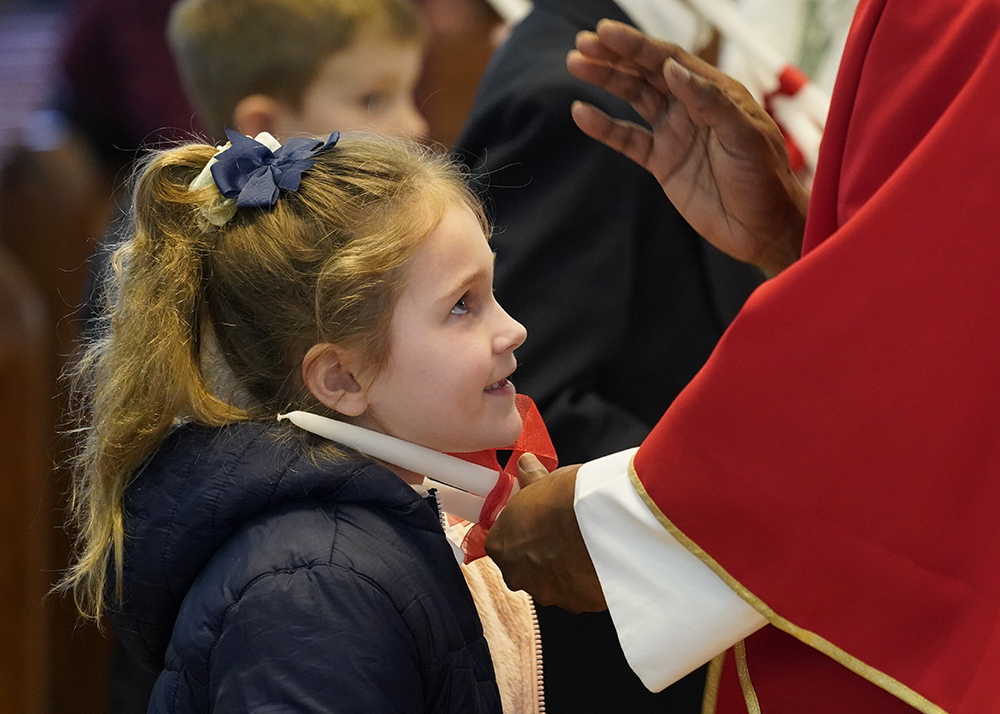
WASHINGTON — In the ongoing cold and flu season, Catholics have an option beyond typical over-the-counter medicines for throat ailments with a special blessing of throats given at many parishes on or near Feb. 3, the feast of St. Blaise.
The blessing, which uses two crossed candles placed over the recipient’s throat, invokes the intercession of the fourth-century Armenian bishop and martyr credited with saving the life of a boy who was choking on a fish bone.
The prayer is usually done at the end of Mass but not all parishes continue this tradition. St Francis of Assisi-St. Blaise Parish in Flatbush is offering the blessing at the 8:30 a.m. Mass Feb. 3 and St. Patrick Church in Bay Ridge is offering it at the noon and 4:30 p.m. Masses that day.
The blessing can be done individually or collectively.
The prayer asks that “through the intercession of St. Blaise, bishop and martyr, may God deliver you from every disease of the throat and from every other illness.”
The Book of Blessings published by the U.S Conference of Catholic Bishops says that this annual blessing of throats is a traditional sign of the struggle against illness in the life of Christians.
It says that if many people have gathered for the blessing, or the feast day occurs on a Sunday, a priest or deacon may give the blessing to the assembled by extending hands while saying the prayer and not using the crossed candles. Some U.S. parishes followed this practice during the pandemic.
Crossed candles are used in this prayer for a few different reasons. They are meant to commemorate the mother of the choking boy who is said to have presented the saint with candles to light his way while he was being taken to jail for practicing his Christian faith. St. Blaise is also said to have stressed that anyone who lit a candle in his memory would be free of infection.
According to tradition, St. Blaise was martyred in the year 316 for refusing to renounce his Christian faith to Agricola, the governor of Cappadocia in present-day Armenia. The saint was beaten with wool combs, used in preparing wool for weaving, which made him the patron saint of English wool combers and of relief from throat ailments.
St. Blaise is one of the 14 Holy Helpers, a group of saints revered as healers. Devotion to the Holy Helpers took root in mid-14th century Germany at the height of the bubonic plague known as the Black Death.
